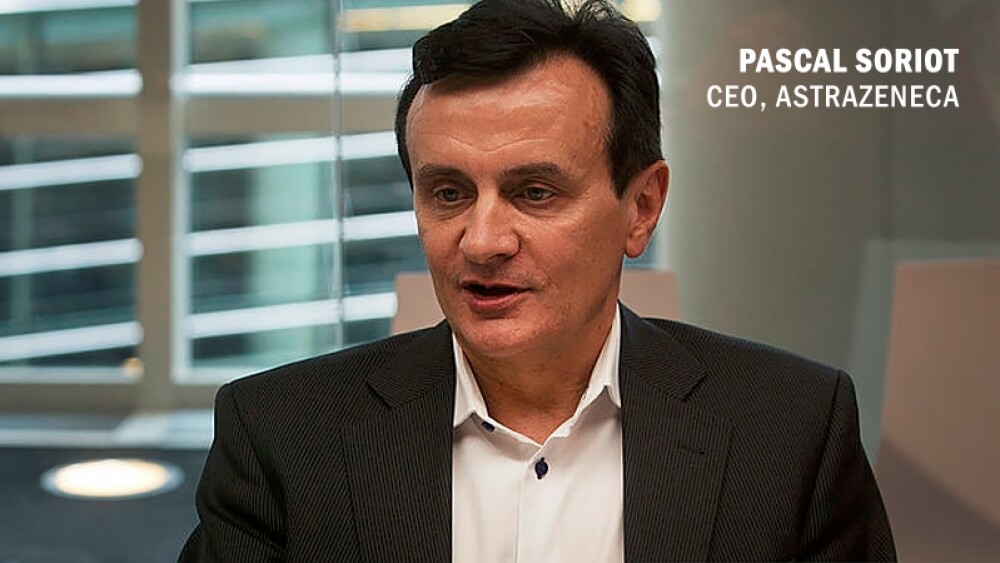June 12, 2017
By Alex Keown, BioSpace.com Breaking News Staff
LONDON – Difficult times could be ahead for AstraZeneca if its next generation immunotherapy treatments fail, Pascal Soriot, chief executive officer of the company has warned.
On Sunday, Soriot told the Financial Times of London that the company could face a “substantial setback” if readouts from its looming Phase III lung cancer trial called MYSTIC are not statistically significant. The trial was initially designed to assess the benefit of durvalumab monotherapy and durvalumab and tremelimumab (durva + treme) combination therapy versus standard-of-care (SoC) chemotherapy, focused on progression-free survival (PFS). However, now the trial will assess PFS and overall survival endpoints in patients with PDL1-expressing tumors for both durvalumab monotherapy and the combination of durva + treme, as well as in ‘all comers’ for the combination of durva + treme, versus SoC chemotherapy, the company said. If the readouts are significantly positive, analysts have suggested the treatment could be worth an estimated $2.5 billion in annual revenue.
Even if the data readouts are not as positive as the company and investors hope, Soriot told the Times that there could still be benefit to the drug therapy when overall survival data is known. However, that data is not expected until 2018. “So if we are lucky we may have a PFS benefit for the combo this year, but if we don’t have a PFS benefit, it doesn’t mean it doesn’t work. It means we have to wait until next year,” Soriot told the Times.
Shares of AstraZeneca have been sliding for much of the past week, falling slightly to $34.17, down from a year high of $35.11 on June 2. In his interview with the Times, Soriot said if the MYSTIC trial does not meet endpoints, company stock will likely fall and once again become the target for a takeover, as it was a few years ago when it fended off Pfizer ’s attempt to acquire the company.
“To some extent you’re always vulnerable. In fact, you could argue that if you succeed you are almost more vulnerable because you’re…?more expensive but you’re a better asset,” Soriot said.
Following the fending off of Pfizer, Soriot pledged to achieve $45 billion in annual revenue by 2023. The company has been eying its respiratory and oncology pipelines as potential financial tent-poles.
In his interview with the Times, Soriot pointed to the company’s pipeline, saying there are some significant revenue drivers and he did not believe the “potential of the company’s wider pipeline of drugs had yet been fully reflected in its share price.”
AstraZeneca is looking for new revenue streams as it faces challenges from generic drugs. Earlier this year, the company said revenue will likely decline in 2017 due to those generic challenges, particularly as generic drugs eat into the marketshare of its blockbuster anti-cholesterol drug Crestor. Its oncology pipeline, which would include the MYSTIC drug, is seen as one of the drivers of revenue for the company. In addition to its durvalumab trials, which includes the third-line lung cancer ARCTIC trial, AstraZeneca is also hoping to expand the use of its PARP inhibitor, Lynparza.
Earlier this year, AstraZeneca laid out how many of its drugs are losing revenue due to competition. For example, AstraZeneca said sales of schizophrenia drug Seroquel XR were down 83 percent in the United States and 37 percent in Europe. COPD drug Symbicort saw a decline of 21 percent in the United States, which AstraZeneca said was in line with predictions for 2017.





